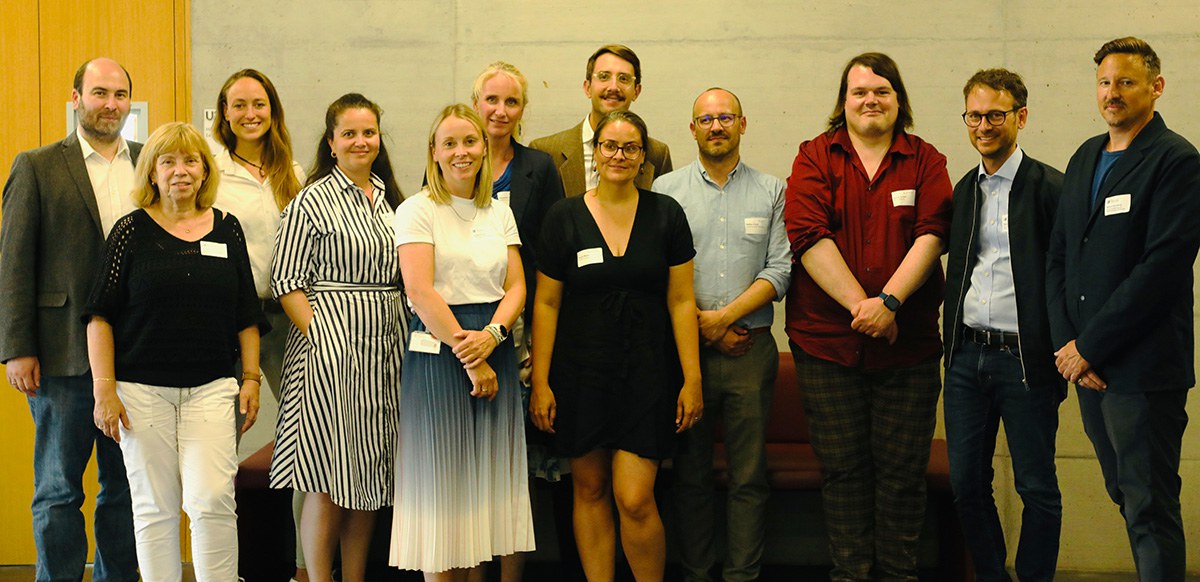In a joint kick-off event at the Vorarlberg University of Applied Sciences (FHV), politics, business and science gave the go-ahead for three innovation labs in the four-country region of Lake Constance. In the labs, ten universities and 50 companies, authorities and social organizations are working together to implement solutions for ecological change in the fields of mobility, buildings, food and textiles.
The labs have 11.7 million euros at their disposal. They are funded by the EU's cross-border Interreg VI Alpenrhein-Bodensee-Hochrhein program and the Swiss government's New Regional Policy. The Labs were initiated by the scientific association Vierländerregion Bodensee, the successor organization to the International Lake Constance University. Organizations from Baden-Württemberg, Bavaria, Liechtenstein, Vorarlberg, the cantons of eastern Switzerland and the canton of Zurich are participating in the Labs.
"Mobility, buildings, food and textiles are those sectors in which we must particularly drive sustainable change. Thisrequiresnotonlycloseinteractionbetweenscienceandpractice,butalsocross-bordercooperationinthefour-countryregionofLakeConstance,"explainedDanielZadra,Vorarlberg'sstatecouncilor,atthelaunchevent."Scienceanduniversitiesareessentialfortacklingthemajorchallengesofthefour-countryregion,"addedSabineRein,PresidentofHTWGHochschuleKonstanz(HTWG)andmemberoftheboardofthesciencenetwork:"Therealizationofthesustainabilitygoalscanonlybeachievedtogether."
The Circular Lab aims to create lighthouse projects for a circular economy in the agricultural, food and textile industries. Among others, the Zurich bag and accessory manufacturer FREITAG, the sporting goods manufacturer everve from Albstadt, the food producer Verdunova from Sennwald and the Agricultural Center Salez are involved. The Lab is led by the University of St. Gallen and the FHV.
The IoT Sustainability Lab investigates the effects of the Internet of Things on sustainability in order to develop technical solutions and innovative business models for IoT services - using the building sector as an application example. Participants in the Lab include Bosch Smart Home, the lighting technology company Zumtobel Group and Anta Swiss, a manufacturer of waste collection systems. The HTWG is in charge of the project.
The Sustainable Mobility Lab aims to work with citizens, municipalities and companies to develop solutions for the increasing complexity in the transport and mobility sector and to implement them with its partners. These include the city of Winterthur and the municipality of Satteins, the Stadtwerk am See utility based in Überlingen, ZF Friedrichshafen, the logistics service provider Gebrüder Weiss, and the Vorarlberg Energy Institute. The lab is managed by the FHV.
The University of Liechtenstein is involved in the IoT Sustainability Lab, which was developed by Prof. Dr Jan vom Brocke, Manuel Weber and Gregor Kipping. In this project, the "Data and Application Security" research group led by Prof. Pavel Laskov is creating new security concepts for data-intensive IoT solutions and investigating the energy consumption of AI algorithms required for this purpose. In this way, the University of Liechtenstein is expanding its technical competencies in the fields of digitalization and sustainability and strengthening its scientific and social anchoring in the Lake Constance region.
The scientific association Vierländerregion Bodensee initiated the Labs and will accompany them throughout their entire duration until 2027. Through the cooperation of science, business and politics on the challenges of digital change, innovative solutions for the four-country region of Lake Constance are to be developed and implemented in the long term. The funding body for the Labs is the cross-border EU funding program Interreg VI Alpenrhein-Bodensee-Hochrhein. The head of the managing authority, Mario Bauer, expects the Labs to "make a concrete contribution to the economic and social development of the four-country region. I am convinced that the Labs will increase the innovation and competitiveness of the region."
